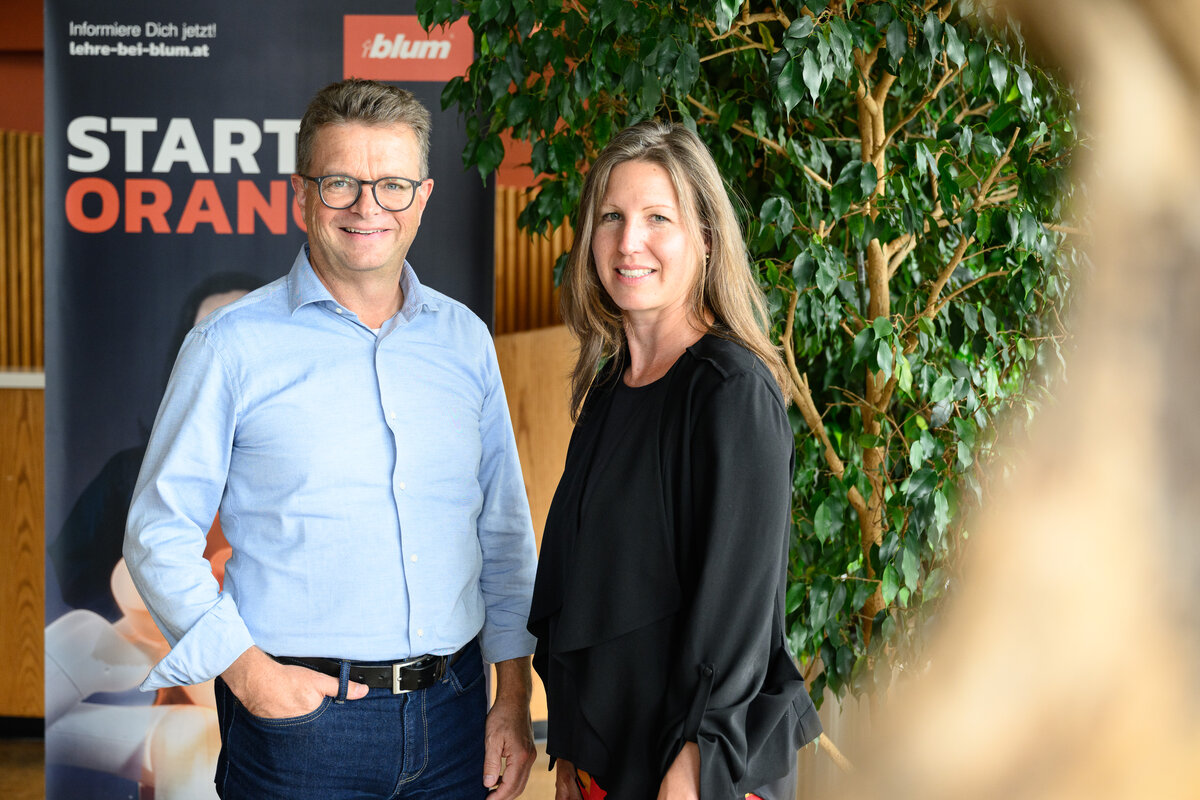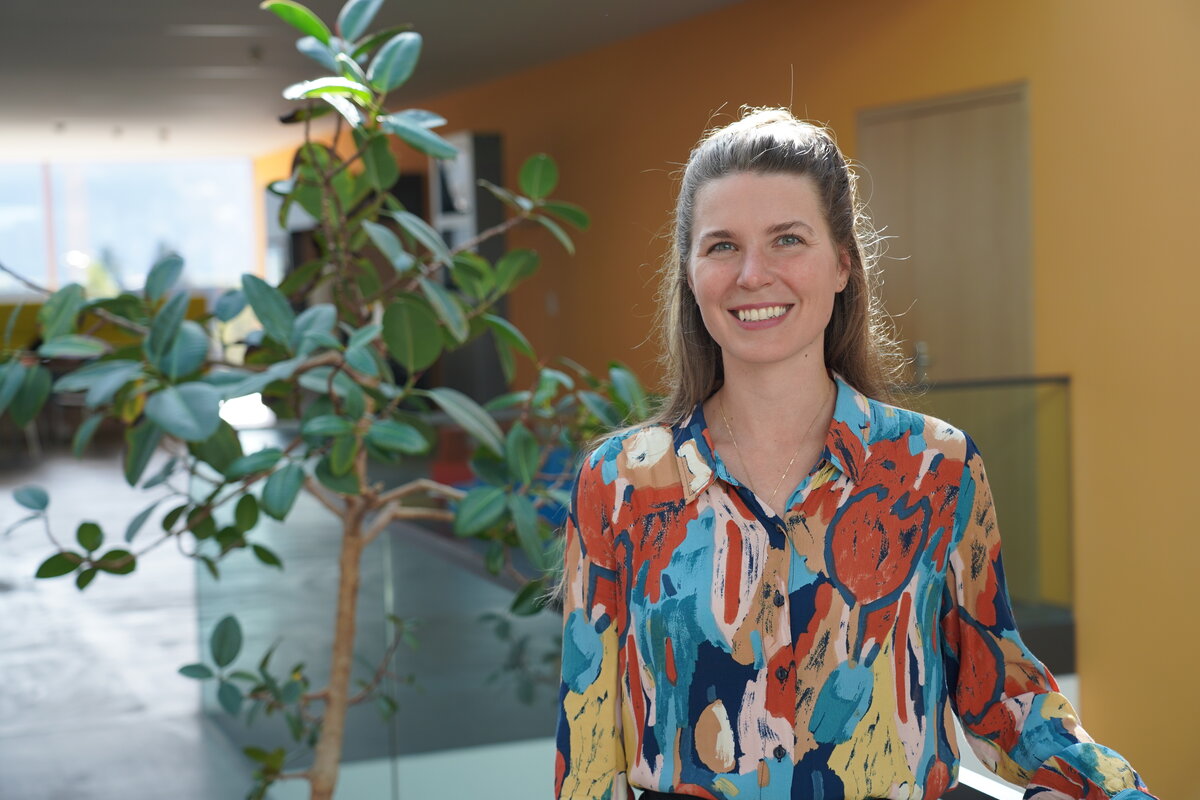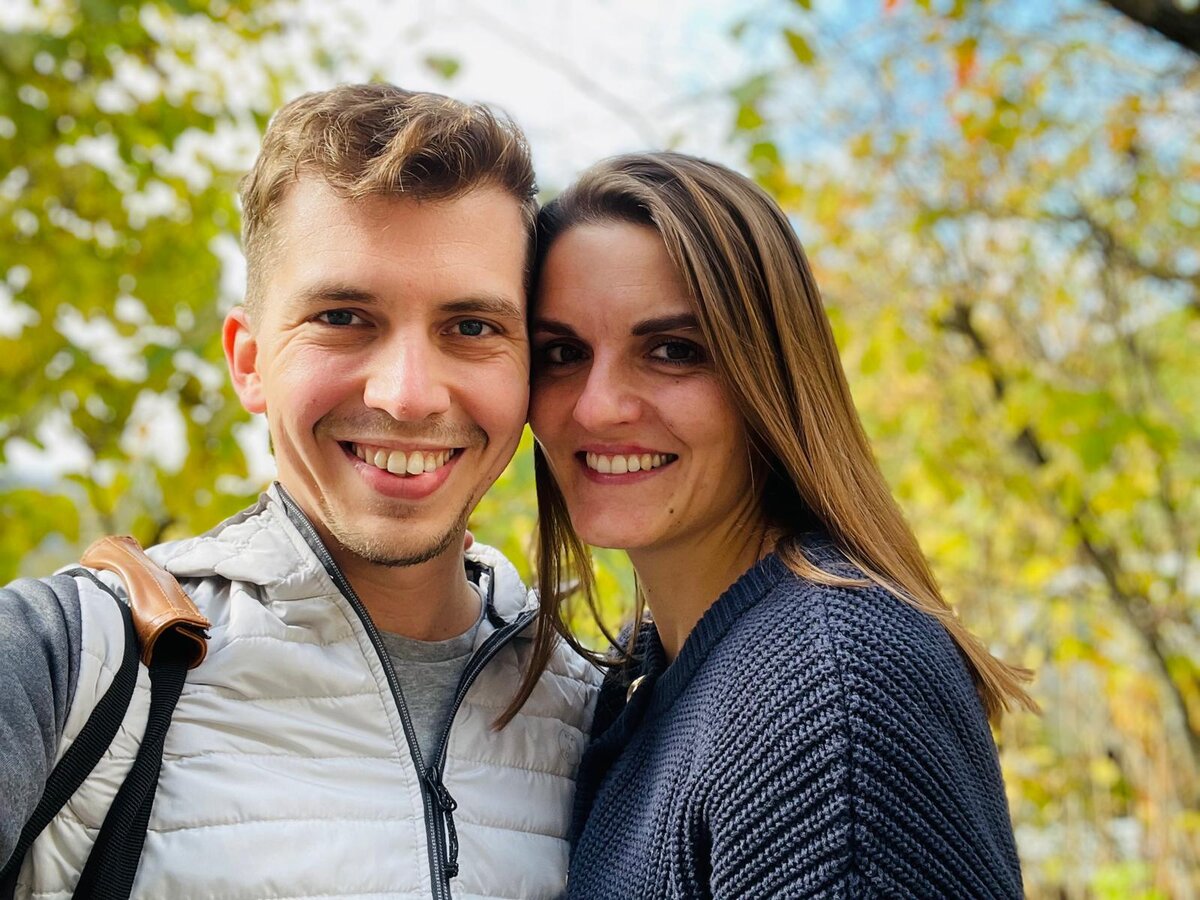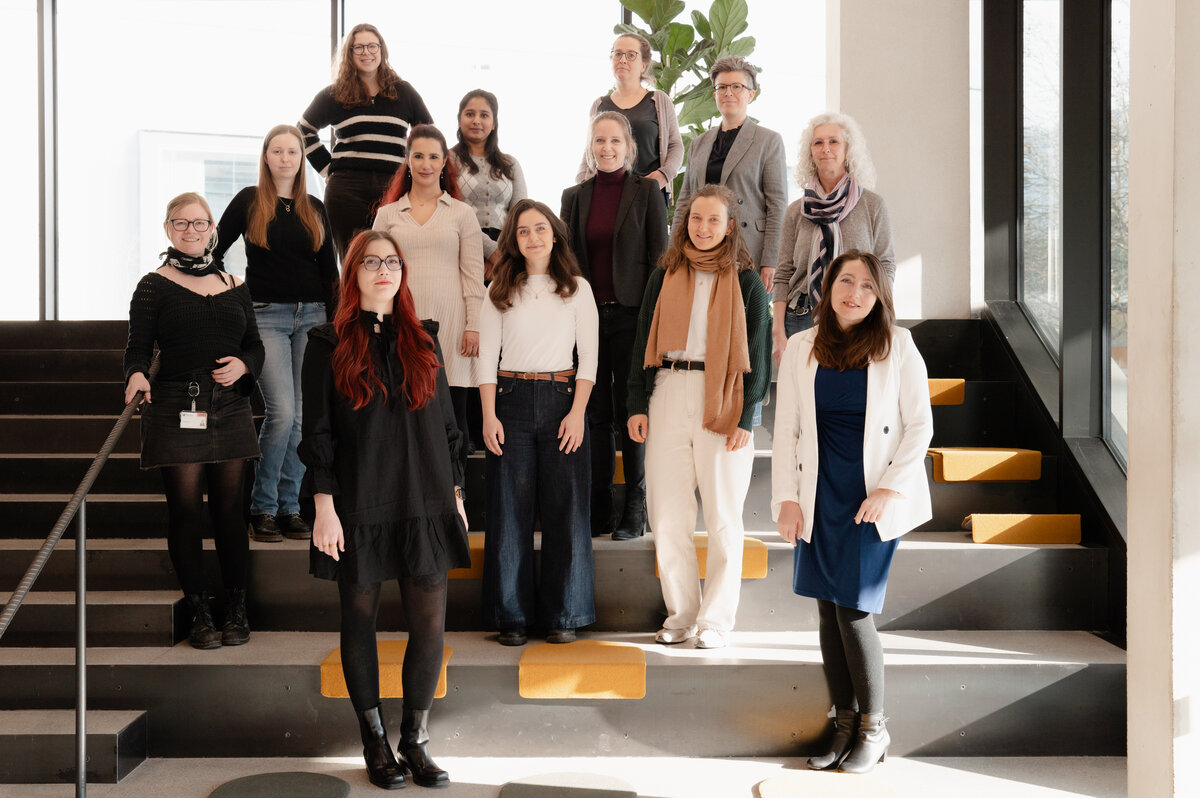In dialog: Research meets Business and Management - Innovation through Cooperation
21.10.2025
In this interview, Sabrina Schneider, Blum Endowed Professor at the FHV, and Klaus Wendel, Head of Information Services and Organization and member of the Management Board at Blum, provide insights into their collaboration - about the opportunities and challenges of digital transformation, the value of trust and the shared responsibility of science and Business and Management for the Vorarlberg region.
What does a "future worth living" mean - from the perspective of research and Business and Management?
Schneider (FHV): We are living in exciting times - characterized by technological, ecological and social changes. If we look at the field of technology, and artificial intelligence in particular, I believe that a future worth living will arise when people are empowered by this technology. When algorithms take over routines so that people have time for the human element again, time for creativity, empathy and collaboration.
Wendel (Blum): I see it very similarly. As a company, it is important to us that technological innovations not only bring efficiency, but also put people at the center. Digitalization should also give our employees more time for creativity and collaboration.
How can digitalization help to shape such a future and where are the limits?
Schneider: Digitalization is often presented as an automatic process: You introduce a new technology and the future is already designed. This is not the case. In reality, digitalization is a cultural and organizational task and challenge. We need to find out how we humans use this technology, what values guide us, how we design our work and what goals we pursue.
Wendel: That's why we at Blum are not only investing in technology, but also in the further development of people - from our employees to students and pupils, who may be our future employees. Through our open corporate culture and the promotion of STEM education, we create an environment that encourages the exchange of ideas and strengthens the willingness to try out new things and thus also the basis for real transformation.
The Blum Endowed Professorship for Digital Business Transformation is a special form of collaboration. What makes it so valuable for both sides?
Schneider: The Blum Endowed Professorship is much more than just funding for us. It is a leap of faith and an opportunity to establish a research focus for Vorarlberg's digital transformation at the FHV in Dornbirn. In addition to networking between Business and Management, politics and society, this requires a deep understanding of the region and the latest research findings. With the endowed professorship, we are not only strengthening the partnership with Blum, but also the innovative power of the entire region. Research findings, methods and networks should benefit all interested parties.
Wendel: For us, the professorship is an investment in the future of the region. It is intended to strengthen the transfer of knowledge between science and practice and jointly develop innovative solutions for the digital transformation. And once again, it is important to emphasize that it is open to all interested companies. We see the professorship as a source of inspiration for the entire region - with the aim of promoting open exchange and facilitating joint learning.
What characterizes the collaboration between research, practice and teaching in the endowed professorship in particular?
Schneider: For me, our collaboration is based on genuine trust and long-term thinking. Research, practice and teaching do not meet as separate worlds, but work closely together: companies open up with their real challenges, we bring in scientific perspectives and international experience, and these findings flow directly into teaching. This creates a cycle that benefits everyone involved - the companies, academia and, above all, the students, who receive practical and future-oriented training.
Wendel: That is also our aspiration. We want our practical challenges to flow into research and at the same time benefit from new scientific findings. Students gain valuable insights and can actively participate in real projects - this creates real added value for everyone involved. This close interlinking of research, practice and teaching is laid down in the foundation agreement and is something we consciously put into practice.
Which topics are at the heart of the joint work - and why are they crucial for Business and Management?
Schneider: Our focus is on two key drivers in the area of digital transformation: artificial intelligence and sustainability. We are particularly interested in the changes to human work, new demands on organizations, knowledge management and collaboration, as well as the impact on strategy, business models and ecosystems. The decisive factor is not only where we want to go, but also how we get there from the status quo.
Wendel: These topics are central to us as a company. We see them as the basis for future business models and sustainable growth. It is important for us to actively make artificial intelligence a topic of conversation within the company, to focus on the benefits and to respond well to fears and concerns. This will be one of our activities in the coming year.
What opportunities and challenges does the digital transformation present in the region?
Schneider: Vorarlberg has the best prerequisites for digital excellence: medium-sized structures, customer proximity, innovative spirit. These are important characteristics for using digital technologies not only to increase efficiency, but also to develop completely new business models and services. However, the biggest challenge is not the technology, but the cultural change. Digital transformation requires courage, clear priorities and, above all, a culture that allows experimentation and encourages learning. The shortage of skilled workers increases the pressure to build up knowledge, take employees with you and strengthen partnerships. If Vorarlberg combines industrial strength, craftsmanship and digital expertise, the region can become a model for a down-to-earth but visionary transformation.
Wendel: This is exactly what we experience in practice: the importance of involving employees and promoting a culture of experimentation. In addition to the shortage of skilled workers mentioned by Sabrina, we are also increasingly challenged by international competitive pressure. Increased digitalization can provide an effective counterbalance here. However, the focus must remain on people. Targeted continuing education and cooperation with science open up valuable opportunities for us.
What aspects of the collaboration so far have been particularly formative?
Schneider: I am impressed by how open and uncomplicated our collaboration is. Trust and short lines of communication create space for new ideas and I really appreciate that.
Wendel: I can only agree with that. The open, uncomplicated collaboration is very valuable to us. Trust is key and Sabrina's down-to-earth attitude helps us to connect with Vorarlberg companies.
If you could formulate one wish for the future of the partnership, what would it be?
Schneider: My wish is that we continue the partnership just as trustingly and openly as before and intensify it further. That we learn from each other and bring impetus to the region, for example on how companies and science can shape the future together.
Wendel: "The "Ländle" region with its owner-managed companies offers the best conditions for cooperation. Short distances and direct communication promote joint solutions. Our partnership should not only benefit Blum, but the entire region. Mutual learning and knowledge transfer are key success factors for us in actively and sustainably shaping the future of Vorarlberg. We want to show how much potential there is in combining science and Business and Management and hope that our commitment will inspire others to follow similar paths.
About the people:
Klaus Wendel has worked at Blum since 2003 and has been Head of Information Services and Organization since 2006. In July 2023, he was appointed to the Executive Board, where, in addition to Computer Science, he is also responsible for the design of the Supply Chain Management and Product Lifecycle Management processes as well as the development of the corporate strategy. The doctor of Business Informatics studied at the University of Vienna and subsequently worked in management consulting for several years.
Sabrina Schneider has headed the Digital Business Transformation research group and the Blum Endowed Professorship of the same name at the FHV since March 2025. The doctor of business administration started her career as a banker and studied at the Frankfurt School of Finance & Management. After working in strategy development at a major bank and international study visits to Scotland, Italy and Sweden, she completed her doctorate on business model innovation at EBS University. This was followed by positions in organizational development and professorships at the University of Kassel and MCI Innsbruck. In her research, she focuses on the design of digital transformation journeys - especially in the context of artificial intelligence. She likes to spend her free time in nature, doing sports or traveling.
If you are interested in working with Sabrina Schneider, you are cordially invited to contact her at: digitales-laendle@fhv.at
Fact box: The Blum Endowed Professorship for Digital Business Transformation
| Goal: |
|
| Research focus: | Artificial intelligence, sustainability, organizational and business model development, knowledge management and change processes in companies. |
| Partners involved: |
FHV - Vorarlberg University of Applied Sciences - Digital Business Transformation Research Group Julius Blum GmbH - Founder and Strategic Partner
|
| Important: | The professorship does not work exclusively for Blum, but sees itself as a regional platform for knowledge transfer, cooperation and innovation. |
| Target group: | Companies, research institutions and students who want to play an active role in Vorarlberg's digital future. |



